MEETINGセミナー・会合
開催終了 18-19 Dec 2023
LCS-RNet 第14回年次会合 – ネットゼロへ向けたさらなる取り組み:市民、政策担当者、研究者などのステークホルダー間の協働をどう進めるか?
- 日時:
Day1:2023年12月18日(月)18:00- 21:15(日本時間)(9:00-12:15 (GMT), 10:00-13:15(CET))
Day2:2023年12月19日(火)18:00- 21:00(日本時間) (9:00-12:00 (GMT), 10:00-13:00(CET)) - 会場:オンライン
- 共催:LCS-RNet、公益財団法人地球環境戦略研究機関
- 言語:英語(同時通訳なし)
2023年12月18日、19日、気候中立社会実現のための戦略研究ネットワーク(LCS-RNet)は、14回目の年次会合をオンラインで実施します。今回の年次会合は、「ネットゼロへ向けたさらなる取り組み:市民、政策担当者、研究者などのステークホルダー間の協働をどう進めるか?」 をメインテーマに、第一線で活躍している、また新進気鋭の専門家による2つの基調講演と、4つのセッションを実施します。基調講演では、「需要側対策」及び「気候市民会議」の二つのテーマを取り上げます。また、テーマ別セッションでは、「都市及びグローバルレベルでの森林の役割」、「市民参画による合意形成をいかに進めるか」、「統合評価モデルやモデル研究者が低炭素・脱炭素国家戦略の策定に果たす役割、制度的・方法論的な課題と挑戦」、及び「持続可能性に向けた科学の役割」を取り上げます。
気候中立社会実現のための戦略研究ネットワーク(LCS-RNet)は、2008年のG8環境大臣会合での日本提案から発足した、各国の気候政策に密接に関与する研究者・研究機関のネットワークです(2021年、設立当時の名称である「低炭素社会国際研究ネットワーク」から改名しました)。ネットワークでは、日・独・仏・伊・英5か国の研究機関が中心となり、研究成果の共有・発信などを通じ、国際政策プロセスに貢献し、各国の国内政策プロセスへとフィードバックを行うとともに、さまざまな主体による気候中立社会の実現に向けた取り組みを支援してきました。
今回の会合は、それぞれのテーマについて、登壇者のみならず参加者を交えた意見交換を行い、今後の共同研究実施や論文の共著につなげていくことのみならず、それぞれが実施している取り組みについて相互に学びあい、それぞれの実装に活かしていくことを目的としています。
| DAY 1:2023年12月18日(月) 18:00-21:15(JST 日本時間)/9:00-12:15(GMT))/ 10:00-13:15(CET) |
|
18:00-18:15 (JST)09:00-09:15 (GMT)10:00-10:15 (CET) |
開会挨拶
|
18:15-18:55 (JST)09:15-09:55 (GMT)10:15-10:55 (CET) |
基調講演:需要側対策司会進行:
発表者:
|
19:05-20:05 (JST)10:05-11:05 (GMT)11:05-12:05 (CET) |
都市及びグローバルレベルでの森林の役割司会進行:
発表者: パネリスト: |
20:15-21:15 (JST)11:15-12:15 (GMT)12:15-13:15 (CET) |
市民参画による合意形成をいかに進めるか司会進行: 発表者:
パネリスト:
|
| DAY 2:2023年12月19日(火) 18:00-21:00(JST 日本時間)/9:00-12:00(GMT))/ 10:00-13:00(CET) |
|
18:00-18:40 (JST)09:00-09:40 (GMT)10:00-10:40 (CET) |
基調講演:気候市民会議司会進行:
発表者:
|
18:50-19:50 (JST)09:50-10:50 (GMT)10:50-11:50(CET) |
統合評価モデルやモデル研究者が低炭素・脱炭素国家戦略の策定に果たす役割:制度的・方法論的な課題と挑戦司会進行:
発表者:
パネリスト:
|
20:00-21:00 (JST)11:00-12:00(GMT)12:00-13:00(CET) |
持続可能性に向けた科学の役割司会進行: 発表者:
パネリスト:
|
 

甲斐沼 美紀子
IGES 研究顧問
Dr. Mikiko Kainuma is a senior research advisor of IGES and a Secretary General of the Climate-neutral Society – Strategic Research Network (LCS-RNet). She has engaged in developing Asia-Pacific Integrated Model (AIM), which assesses policy options for stabilizing the global climate, particularly in the Asian-Pacific region. She is Lead Author of IPCC 4th and 5th WG3 Assessment Reports and Special Report on 1.5 degrees, and Coordinating Lead Author of UNEP Global Environment Outlook 6 (GEO-6). She received Nikkei Global Environmental Technology Award (1994), Remarkable Contribution to Science and Technology 2010: NISTEP (2010), NIES Awards (2002, 2007, 2008) and Academic Award by the Society of Environmental Science, Japan (2011).
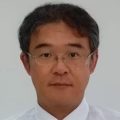
塚田 源一郎
環境省 地球環境局総務課 気候変動適応室 室長
1996年⼊省。オランダ王国派遣(⼈事院短期在外研究員)、中国四国地⽅環境事務所⾼松事務所⻑、インドネシア共和国派遣(JICA環境政策アドバイザー)、環境省環境再⽣・資源循環局企画官(特定廃棄物対策担当参事官付室⻑)、兵庫県農政環境部参事(アジア太平洋地球変動研究ネットワーク(APN)センター⻑)等を経て、2021年7⽉より現職。

Franck Lecocq
Centre International de Recherche sur l’Environnement et le développement (CIRED)/ AgroParisTech
Franck Lecocq is Director of CIRED (Centre International de Recherche sur l’Environnement et le développement) and senior researcher at AgroParisTech (Paris Institute of Technology for the development). Franck Lecocq has published extensively on the economics of climate change. His current research focuses on the relationship between climate change and sustainable development. Franck Lecocq was previously deputy director of the Forest Economics Laboratory (INRAE / AgroParisTech) in Nancy and an economist at the Development Economics Research Group of the World Bank. He holds a PHD in economics from AgroParisTech. He was lead author of the fourth and fifth IPCC assessment reports (Working group IIII) and Coordinating Lead Author (jointly with Harald Winkler) in the last IPCC sixth assessment report (chapter 4 of Working group III ‘Mitigation and development pathways in the near- to mid-term’).
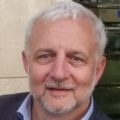
Nicola Colonna
National Agency for New Technologies, Energy and Sustainable Economic Development (ENEA)
Dr. Nicola Colonna is a senior researcher at Biotechnology and Agroindustry Division of ENEA (National Agency for New Technologies, Energy and Sustainable Economic Development) in Rome and focuses his research activities on overall sustainability of the agrifood production systems.
He has a background in agronomy and a PhD in agricultural sciences got at Pisa S’Anna High University School in 1997. He works at ENEA since 1990 dealing on environmental impacts assessment, natural resources consumption and degradation connected to the agrifood systems at national and EU level. Since early 2000s he has participated and coordinated several EU projects on knowledge and technology transfer to the agrifood enterprises of innovative solutions to deal with mitigation goals by energy saving and renewables and soil carbon storage.
Currently he coordinates the ENEA task force on the Decarbonization of Agrifood Systems.

Bruno Dorin
International research center on Agronomy and Development (CIRAD)
Bruno Dorin (PhD. in economics, postgraduate in agricultural engineering) has 17 years of research experience in France and 16 in India. Is an economist at CIRAD (Montpellier), CIRED (Paris) and CSH (New Delhi). Works on large range of issues (nexus agriculture-nutrition-productivity-employment-poverty-ecology) and developed Agribiom, a quantitative tool for analysing past productions and uses of biomasses (since the 1960s) and buiding future scenarios of structural transformation (horizon 2050). Is author of many academic articles in addition to five books in English, including “Agrimonde: scenarios and challenges for feeding the world in 2050” (Versailles 2011; Springer 2014).
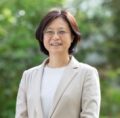
三枝 信子
国立環境研究所(NIES)
Dr. Nobuko Saigusa is a director of the Earth System Division of National Institute for Environmental Studies (NIES). She has engaged in developing long-term observation networks on the exchange of carbon dioxide between Asian terrestrial ecosystems and the atmosphere. She is a Lead Author of IPCC Special Report on Climate Change and Land. She received Horiuchi Award of the Meteorological Society of Japan (2009) and NIES Awards (2020, 2021), and was a co-recipient of the Norbert Gerbier-MUMM International Award (2012) of the World Meteorological Organization.
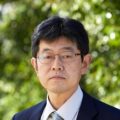
増井 利彦
国立環境研究所(NIES)
Prof. Masui is a Director of Social Systems Division at National Institute for Environmental Studies (NIES) and a Visiting Professor at Tokyo Institute of Technology. He has developed Asia-Pacific Integrated Model (AIM) to quantify a roadmap to achieve a decarbonized society at the national level, and has worked intensively to transfer the AIM to Asian countries. He is a member of the Central Environmental Council of the Ministry of the Environment, and a Lead Author of the near-to mid-term scenario chapter of IPCC AR6.

Robert Gross
UKERC/Imperial College London
Robert is the Director of the UK Energy Research Centre (UKERC). He is Professor of Energy Policy and Technology at Imperial College London. He has extensive teaching and post-graduate training experience.
Robert is a Fellow and Council member of the Energy Institute. He is also Council member and former Chair of the British Institute of Energy Economists (BIEE). Robert is currently a member of the Academic Advisory Panel for Ofgem (2018 to date). He has been a specialist advisor to 3 Parliamentary Select Committees, has experience of and engagement with UK policymaking, and has published extensively on energy policy, economics and technological innovation.

Tomoko Hasegawa
Ritsumeikan University
Tomoko Hasegawa is an Associate Professor at Ritsumeikan University’s College of Science and Engineering, having joined it in April 2019. Her main research focuses on food- and land-related topics in global integrated assessment modeling, including food system, land use change and dynamics, greenhouse gases emissions, climate mitigation options, climate impacts and adaptation for agriculture and food security. Her research attempts to inform short- and mid-term national environmental policy on national emission reduction targets and mitigation options in the agricultural and land use sectors. She is involved in the development and application of the integrated assessment model AIM (Asian-Pacific Integrated Model). Through its application she has been involved in many international projects and interdisciplinary activities related to the above-mentioned topics. She has been selected as a highly cited researcher from 2019 to 2022 and a Lead Author of the Sixth Assessment Report of the Intergovernmental Panel on Climate Change.

Marie de Lattre-Gasquet
International research center on Agronomy and Development (CIRAD)
Marie de Lattre-Gasquet is a researcher from CIRAD and works in the research unit “Actors, Resources and Territories in Development” (ART-Dev). Her research is centered around foresight as a tool for engagement and support for strategy and decision making at international and national levels in the fields of agriculture and food security, trust between society and science, organizations and networks. Currently, she is also Secretary of Cirad scientific board and the Committe “Ethique en Commun”. She is a board member of Futuribles and a member of the French Academy of Agriculture. She holds an MBA and a PhD in management and economics, and is auditor of IHEST (Institute for advanced studies in science and society).

Kirsten Halsnæs
Technical University of Denmark (DTU)
Prof. Kirsten Halsnæs is Sustainable Development Coordinator/Senior Research Specialist at UNEP Risoe Centre on Energy, Climate and Sustainable Development (URC), Denmark, and Professor of Department of Technology, Management and Economics Sustainability, Technical University of Denmark (DTU). Kirsten is an international expert on the economics of climate change and has played a leading role in several international studies on sustainable development and climate change policies. The studies include estimation of costs and benefits, and development impacts of climate change mitigation as well as studies on climate change vulnerability and response strategies with partners in developing countries in Asia, Africa and Latin America. She is Coordinating Lead Author of the sustainable development chapter of IPCC AR6.

Joyashree Roy
Asian Institute of Technology (AIT)
Prof. Joyashree Roy is the inaugural Bangabandhu Chair Professor at AIT. Joyashree lectures at the Department of Energy, Environment, and Climate, School of Environment, Resources and Development, AIT, Thailand. Joyashree was Indian Council of Social Sciences Research (ICSSR) national fellow and a Ford Foundation Postdoctoral Fellow at Lawrence Berkeley National Laboratory, Berkeley, USA. She is Coordinating Lead Author of Chapter of Demand, services and social aspects of mitigation of IPCC AR6.

Stefan Lechtenböhmer
Wuppertal Institute (WI)
Prof. Dr. Stefan Lechtenböhmer is Director of the Division Future Energy and Industry Structures of the Wuppertal Institute (WI) for Climate, Environment and Energy, Wuppertal, Germany and holds an adjunct professorship in Environmental and Energy Systems with a special focus on Future Sustainable Energy Systems at Lund University, Sweden. He acquired his PhD in energy and environmental management at the International Institute for Management, University of Flensburg, Germany. He conducts applied research in national and international energy and climate scenario analysis particularly on low carbon industries. He has led intensive stakeholder processes on deep decarbonisation scenarios with energy intensive industries. His research topics include design and evaluation of energy system transformation and Energiewende, GHG emission inventories and projections, sustainable building and planning, and the coal and natural gas sectors.

Mercedes Maroto-Valer
UKERC/Heriot-Watt University
- Champion and Director- UK Industrial Decarbonisation Research and Innovation Centre (IDRIC)
- Deputy Principal (Global Sustainability) and Director of the Research Centre for Carbon Solutions (RCCS) at Heriot-Watt Universit
Professor Mercedes Maroto-Valer (FRSE, FIChemE, FRSC, FRSA, FEI) is Champion and Director of the UK Industrial Decarbonisation Research and Innovation Centre (IDRIC) focused on accelerating the transition to net zero of the UK industrial clusters and establishing the first world net-zero industrial cluster. Mercedes is Deputy Principal (Global Sustainability) and Director of the Research Centre for Carbon Solutions (RCCS) at Heriot-Wat University. Her internationally recognised track record covers energy systems, CCUS, integration of hydrogen technologies and low-carbon fuels. She has over 550 publications, holds leading positions in professional societies and editorial boards and has received numerous international prizes and awards.
@MercedesMarotoV Mercedes Maroto-Valer
@IDRICUK Industrial Decarbonisation Research and Innovation Centre

栗山 昭久
IGES 気候変動とエネルギー領域 研究員
Dr. Akihisa Kuriyama is a researcher at the Institute for Global Environmental Strategies (IGES). He had engaged in supporting the CO2 mitigation projects in the energy sector of Southeast Asian countries and conducted quantitative analysis on the international mechanisms such as the Kyoto mechanism. For the domestic issues in Japan, he worked for analysis to develop scenarios towards a decarbonized society, and to assess long and medium-term goals. He also engaged in projects to promote renewable energies such as Japan’s power system analysis and just transition issues.

Jean-Charles Hourcade
Centre International de Recherches sur l’Environnement et le Développement (CIRED)
Prof. Jean-Charles Hourcade is Research Director Emeritus of the National Center for Scientific Research (CNRS) and Director of Studies Emeritus at the School for Advanced Studies in the Social Sciences (E.H.E.S.S) in France. Prior to this, he was acting Director of the CIRED (Centre International de Recherches sur l’Environnement et le Développement) between 1985 and 2012. He participated in the French negotiating team between COP 1 and COP 6. He is a review editor of Investment and finance chapter, IPCC AR5.

Hilton Trollip
University of Cape Town
Hilton graduated with an MSc Electrical Engineering in 1983. In 2000 he has was appointed senior lecturer and Postgraduate Director of the Energy and Development Studies Programme at University of Cape Town (UCT). He is currently a research fellow in the Global Risk Governance programme and Research Associate at the Energy Systems Research Group UCT. He has worked at senior levels in government and the private sector. His main current involvement is South African team lead since 2018 of the project: Deep Decarbonization Pathways in Emerging economies https://www.iddri.org/en/project/deep-decarbonization-pathways-emerging-economies. He is lead author of recent journal article: How green primary iron production in South Africa could help global decarbonization.

Janet Webb
UKERC/The University of Edinburgh
Janette Webb MBE FEI is Edinburgh University Professorial Fellow in Social Studies of Energy and UK Energy Research Centre Co-Director (Local and Regional Energy Systems). She is a member of Ofgem/Innovate UK Strategic Innovation Fund expert panel on Whole Systems Integration and Scottish Science Advisory Council Energy Group. Her research concerns policy and practice for sustainable heat and low energy buildings, and integrated local energy systems. In 2020 she was awarded an MBE for services to the UK energy transition.

Marion Gonzales
Sustainable city by France
Marion Gonzales is a Communication & international project Manager for France Ville Durable, the French association of public and private professional sustainable city stakeholders (the French State and public operators, local authorities, experts, and companies). Trained in international and European affairs between England and France as part of a double degree at Sciences-Po Lille / University of Kent, she started her career in advocacy and institutional relations of non-governmental organizations and public institutions.

Isabelle Dennieau
Sustainable city by France
Isabelle Dennieau is the Development & Partnerships director of Efficacity, the French research and development center dedicated to urban energy transition. Efficacity has been funded in 2014 by the French government. The center unites on a single site the skills of researchers from the best backgrounds in industry, engineering, and public research. Isabelle has a strong international experience, started in the consumer goods industry sector and she specialized in the Energy Efficiency sector in the last 15 years. She graduated with a master’s degree in Management and Business Administration, at Excelia Business School in France and Turku School of Economics in Finland.

Carolina Innella
National Agency for New Technologies, Energy and Sustainable Economic Development (ENEA)
Carolina Innella, chemist, researcher at ENEA-Italian National Agency for New Technologies, Energy and Sustainable Economic Development, since 2000.She carries out activities on the development of policies, methodologies and tools for the transition to circular economy of urban areas, territories and communities.She is involved in several networks and EU or National funded projects, and she is scientific coordinator of projects on circular economy at urban level. She also coordinates the working group “Circular cities and territories” within the Italian Circular Economy Stakeholder Platform.
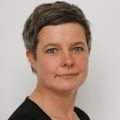
Anja Bierwirth
Wuppertal Institute (WI)
Anja Bierwirth is head of the research unit Urban Transitions in the research division Energy-, Transport- and Climate Policy at the Wuppertal Institute for Climate, Environment and Energy. She studied architecture in Bremen and Cologne and completed her master studies on environmental sciences at the FernUni Hagen. She worked as an architect and in the field of environmental education. Since 2008 she works at the Wuppertal Institute in the fields of local energy and climate action policy, energy efficiency and sufficiency in buildings and sustainable urban development.

浅川 賢司
IGES 都市タスクフォース プログラムマネージャー
Kenji Asakawa, architect & lawyer, programme manager of City Taskforce of Institute for Global Environmental Strategies, IGES. He has been working at Institute for Global Environmental Strategies on the local administration towards zero carbon city, as well as soft-law approach on urbanization control.
 気候中立社会実現のための
気候中立社会実現のための
